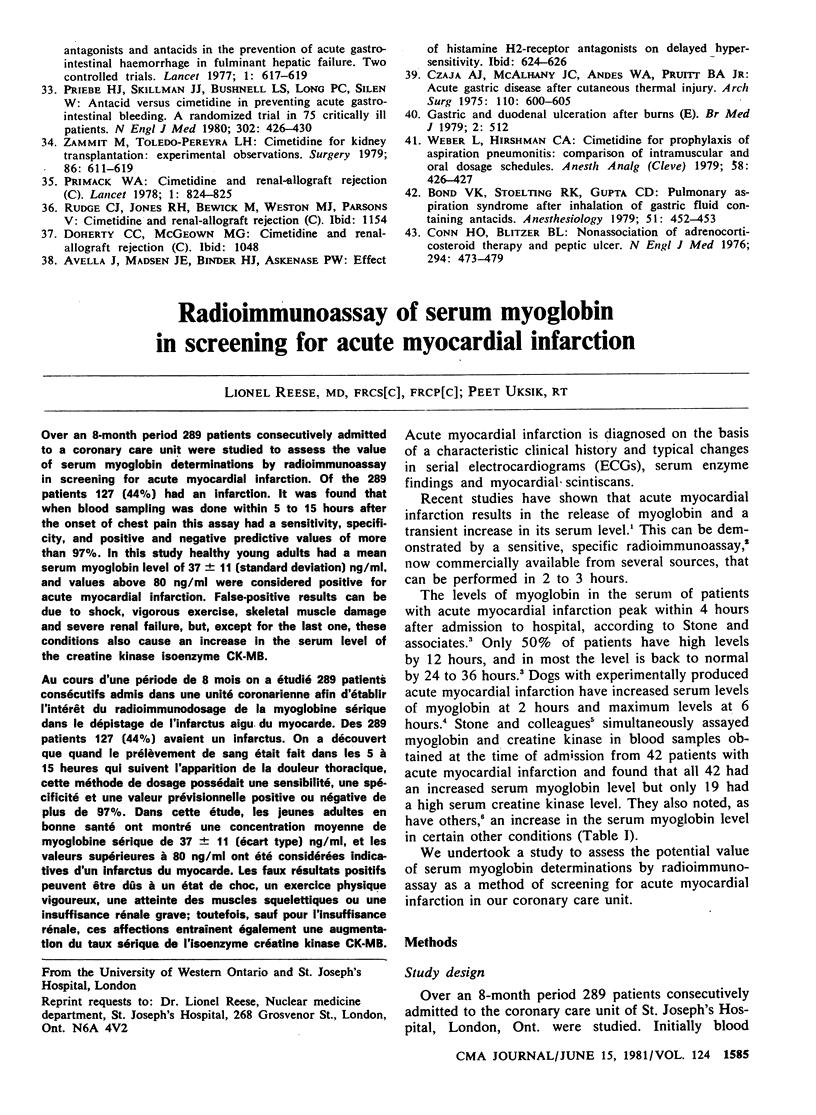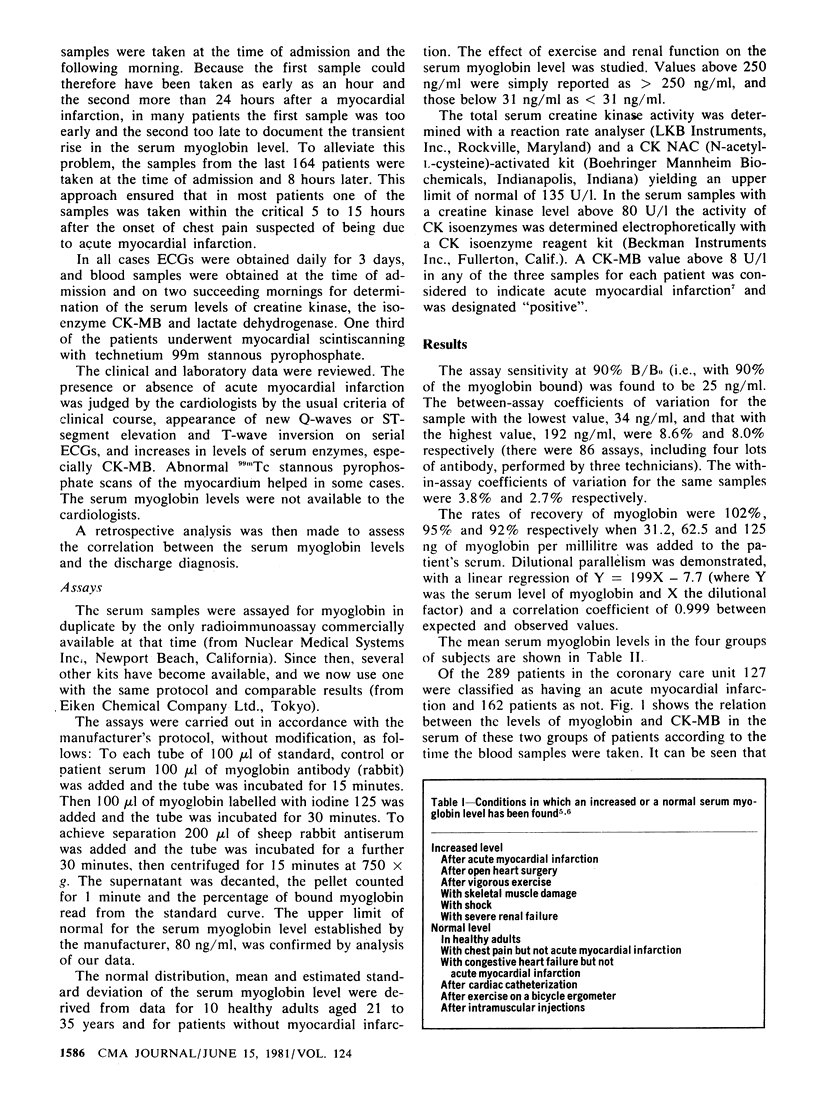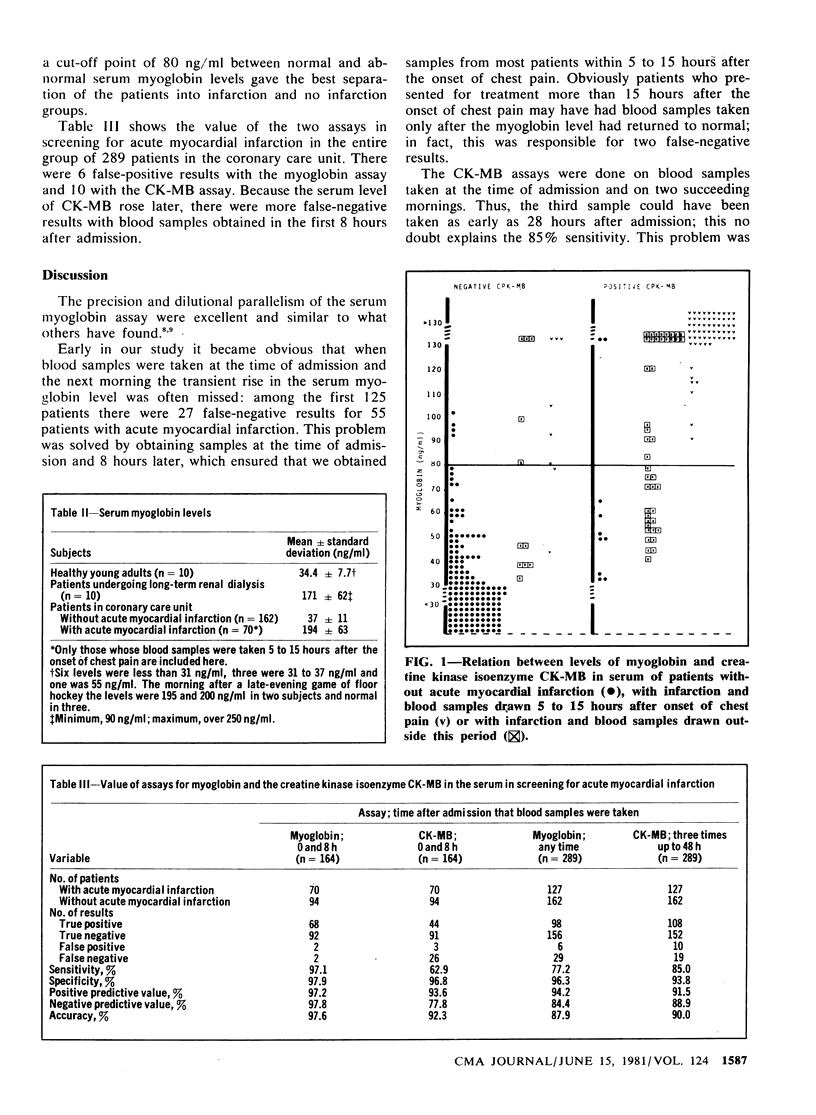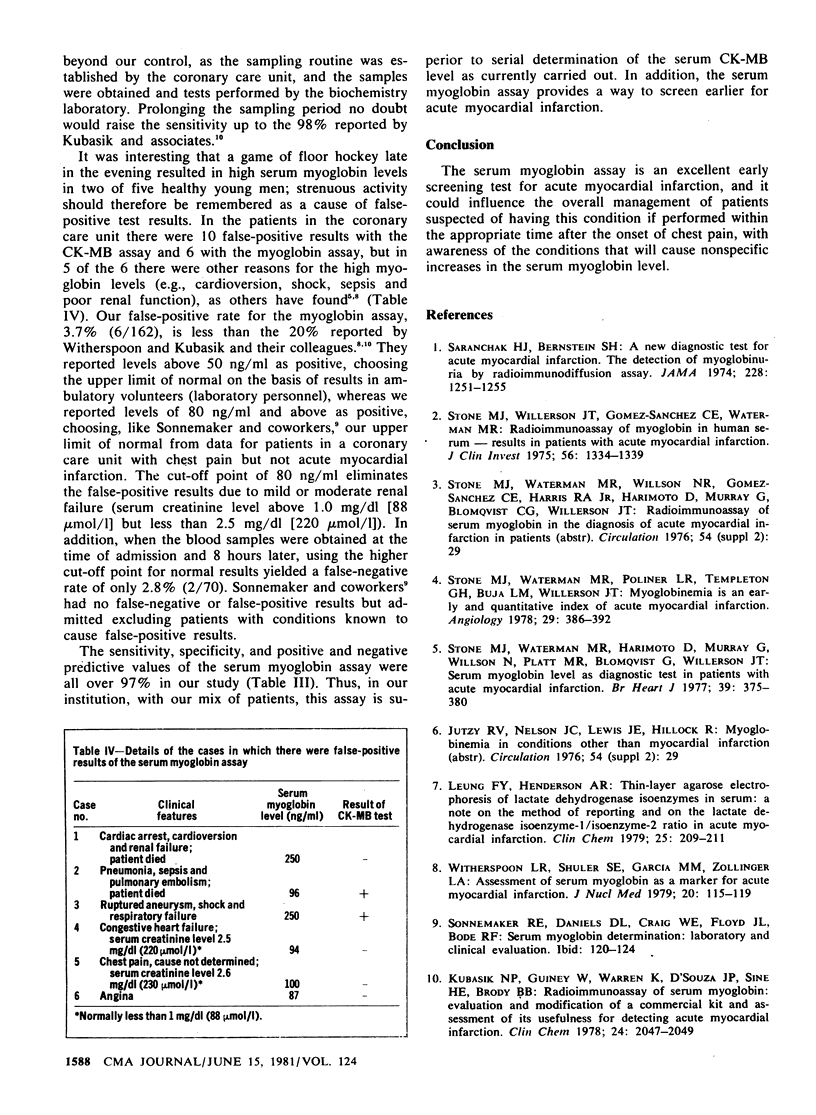Abstract
Over an 8-month period 289 patients consecutively admitted to a coronary care unit were studied to assess the value of serum myoglobin determinations by radioimmunoassay in screening for acute myocardial infarction. Of the 289 patients 127 (44%) had an infarction. It was found that when blood sampling was done within 5 to 15 hours after the onset of chest pain this assay had a sensitivity, specificity, and positive and negative predictive values of more than 97%. In this study healthy young adults had a mean serum myoglobin level of 37 +/- 11 (standard deviation) ng/ml, and values above 80 ng/ml were considered positive for acute myocardial infarction. False-positive results can be due to stock, vigorous exercise, skeletal muscle damage and several renal failure, but, except for the last one, these conditions also caused an increase in the serum level of the creatine kinase isoenzyme CK-MB.
Full text
PDF



Selected References
These references are in PubMed. This may not be the complete list of references from this article.
- Kubasik N. P., Guiney W., Warren K., D'Souza J. P., Sine H. E., Brody B. B. Radioimmunoassay of serum myoglobin: evaluation and modification of a commercial kit and assessment of its usefulness for detecting acute myocardial infarction. Clin Chem. 1978 Nov;24(11):2047–2049. [PubMed] [Google Scholar]
- Leung F. Y., Henderson A. R. Thin-layer agarose electrophoresis of lactate dehydrogenase isoenzymes in serum: a note on the method of reporting and on the lactate dehydrogenase isoenzyme-1/isoenzyme-2 ratio in acute myocardial infarction. Clin Chem. 1979 Feb;25(2):209–211. [PubMed] [Google Scholar]
- Saranchak H. J., Bernstein S. H. A new diagnostic test for acute myocardial infarction. The detection of myoglobinuria by radioimmunodiffusion assay. JAMA. 1974 Jun 3;228(10):1251–1255. [PubMed] [Google Scholar]
- Stone M. J., Waterman M. R., Harimoto D., Murray G., Willson N., Platt M. R., Blomqvist G., Willerson J. T. Serum myoglobin level as diagnostic test in patients with acute myocardial infarction. Br Heart J. 1977 Apr;39(4):375–380. doi: 10.1136/hrt.39.4.375. [DOI] [PMC free article] [PubMed] [Google Scholar]
- Stone M. J., Waterman M. R., Poliner L. R., Templeton G. H., Buja L. M., Willerson J. T. Myoglobinemia is an early and quantitative index of acute myocardial infarction. Angiology. 1978 May;29(5):386–392. doi: 10.1177/000331977802900506. [DOI] [PubMed] [Google Scholar]
- Stone M. J., Willerson J. T., Gomez-Sanchez C. E., Waterman M. R. Radioimmunoassay of myoglobin in human serum. Results in patients with acute myocardial infarction. J Clin Invest. 1975 Nov;56(5):1334–1339. doi: 10.1172/JCI108211. [DOI] [PMC free article] [PubMed] [Google Scholar]
- Witherspoon L. R., Shuler S. E., Garcia M. M., Zollinger L. A. Assessment of serum myoglobin as a marker for acute myocardial infarction. J Nucl Med. 1979 Feb;20(2):115–119. [PubMed] [Google Scholar]


